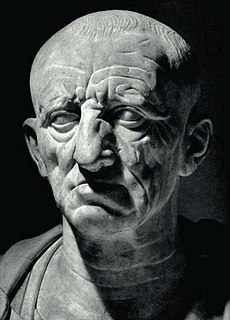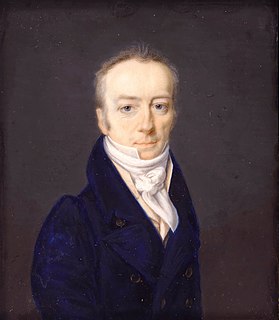A Quote by Charles Churchill
There's a strange something, which without a brain
Fools feel, and which e'en wise men can't explain,
Planted in man, to bind him to that earth,
In dearest ties, from whence he drew his birth.
Related Quotes
At first, man was enslaved by the gods. But he broke their chains. Then he was enslaved by the kings. But he broke their chains. He was enslaved by his birth, by his kin, by his race. But he broke their chains. He declared to all his brothers that a man has rights which neither god nor king nor other men can take away from him, no matter what their number, for his is the right of man, and there is no right on earth above this right. And he stood on the threshold of freedom for which the blood of the centuries behind him had been spilled.
These terrifying forms which advance on me, I feel that the despair they bring is alive. It slips into this nucleus of life beyond which the paths of eternity extend. It is truly an eternal separation. They slip their knives into this center where I feel myself a man, they sever those vital ties which bind me to the dream of my lucid reality.
BRAIN, n. An apparatus with which we think that we think. That which distinguishes the man who is content to be something from the man who wishes to do something. A man of great wealth, or one who has been pitchforked into high station, has commonly such a headful of brain that his neighbors cannot keep their hats on. In our civilization, and under our republican form of government, brain is so highly honored that it is rewarded by exemption from the cares of office.
Truly, there are terrible primal arcana of earth which had better be left unknown and unevoked; dread secrets which have nothing to do with man, and which man may learn only in exchange for peace and sanity; cryptic truths which make the knower evermore an alien among his kind, and cause him to walk alone on earth.
To be successful, a man must exert an effective influence upon his brothers and upon his associates, and the degree in which he accomplishes this depends on the personality of the man. The incandescence of which he is capable. The flame of fire that burns inside of him. The magnetism which draws the heart of other men to him.
There is no man ... however wise, who has not at some period of his youth said things, or lived a life, the memory of which is so unpleasant to him that he would gladly expunge it. And yet he ought not entirely to regret it, because he cannot be certain that he has indeed become a wise man -- so far as it is possible for any of us to be wise -- unless he has passed through all the fatuous or unwholesome incarnations by which that ultimate stage must be preceded.
Nothing feebler than a man does the earth raise up, of all the things which breathe and move on the earth, for he believes that he will never suffer evil in the future, as long as the gods give him success and he flourishes in his strength; but when the blessed gods bring sorrows too to pass, even these he bears, against his will, with steadfast spirit, for the thoughts of earthly men are like the day which the father of gods and men brings upon them.






































